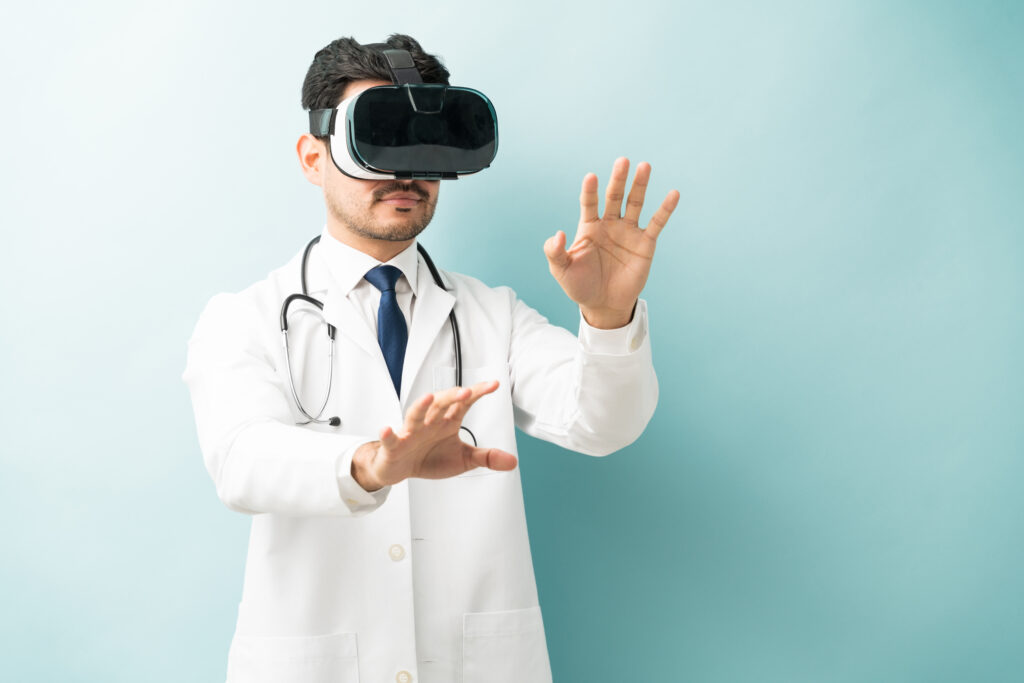While metaverse is being talked about in industries such as entertainment, gaming, and socialising, the healthcare industry is also not free of its influence. Pre-pandemic, the healthcare industry was accused of shying away from the usage of technology. However, now the industry seems to be advancing rapidly with the help of artificial intelligence and digitization. The question arises: what avenues can the metaverse hold for healthcare and how will it drive better outcomes for doctors and patients.
In the healthcare industry, metaverse’s role will be transformational, experts believe. With the help of augmented reality, advanced artificial intelligence, and virtual reality, a more experiential environment will be created. The goal of metaverse in healthcare is to provide a more real-time experience for medical study, surgeries, and virtual hospitals. Products such as 8chilli’s HintVR™ are one of the metaverse platforms. The expected transformations of metaverse in healthcare extend far beyond the scope of this article. However, some of the ways through which it will be impacted have been laid out:
Telehealth
Metaverse will enable the provision of medicine in a remote setting, also called telemedicine, or more generally, telehealth. Pre-pandemic, 43% of the healthcare providers had the facility to provide treatments remotely. The figure moved to 95% after the pandemic. Virtual Reality (VR) is a more advanced way of providing a real-time experience. These technologies will enable patients to access healthcare services without geographical location having a part in it.
Convergence
Convergence of different technological services on a unified platform will enable easy data sharing and, consequently, quicker treatment. Moreover, patients’ monitoring will render issues like compliance easy to track, thereby assisting an easy diagnosis and treatment. Convergence rules out the issues related to current healthcare system that slow the process down. Metaverse will also contribute in lessening workforce burnout.
Virtual Hospitals and Medical Education
Virtual Medical education will allow highly immersive experience to the students. For instance, students and trainees can learn about human anatomy in a virtual space. In the World Health Organization’s state-of-the-art learning centre, a AR-powered tool has been employed by the academy for trainees to show how safely patients with COVID-19 can be treated by putting on personal protective equipment (PPE).
Likewise, virtual hospitals, such as the one being established in Taiwan for aged care, will enable patients to get diagnosis and treatments with the help of VR headset. Latus Health is said to launch virtual hospital within 12 to 18 months which will initially concentrate on physiotherapy and counselling.
Blockchain Technology
Blockchain technology enable data sharing securely by minimising the risk of being tampered with. In metaverse, this technology is considered crucial as it gives ownership only to the individuals who own it digitally. In healthcare, blockchain technology will enable the management of data sharing in a secure way, which is one of the major concerns of the healthcare industry. Moreover, by securing it really well, the problem of accessibility by legitimate actors also becomes difficult. In metaverse, blockchain technology will ease out this issue.


